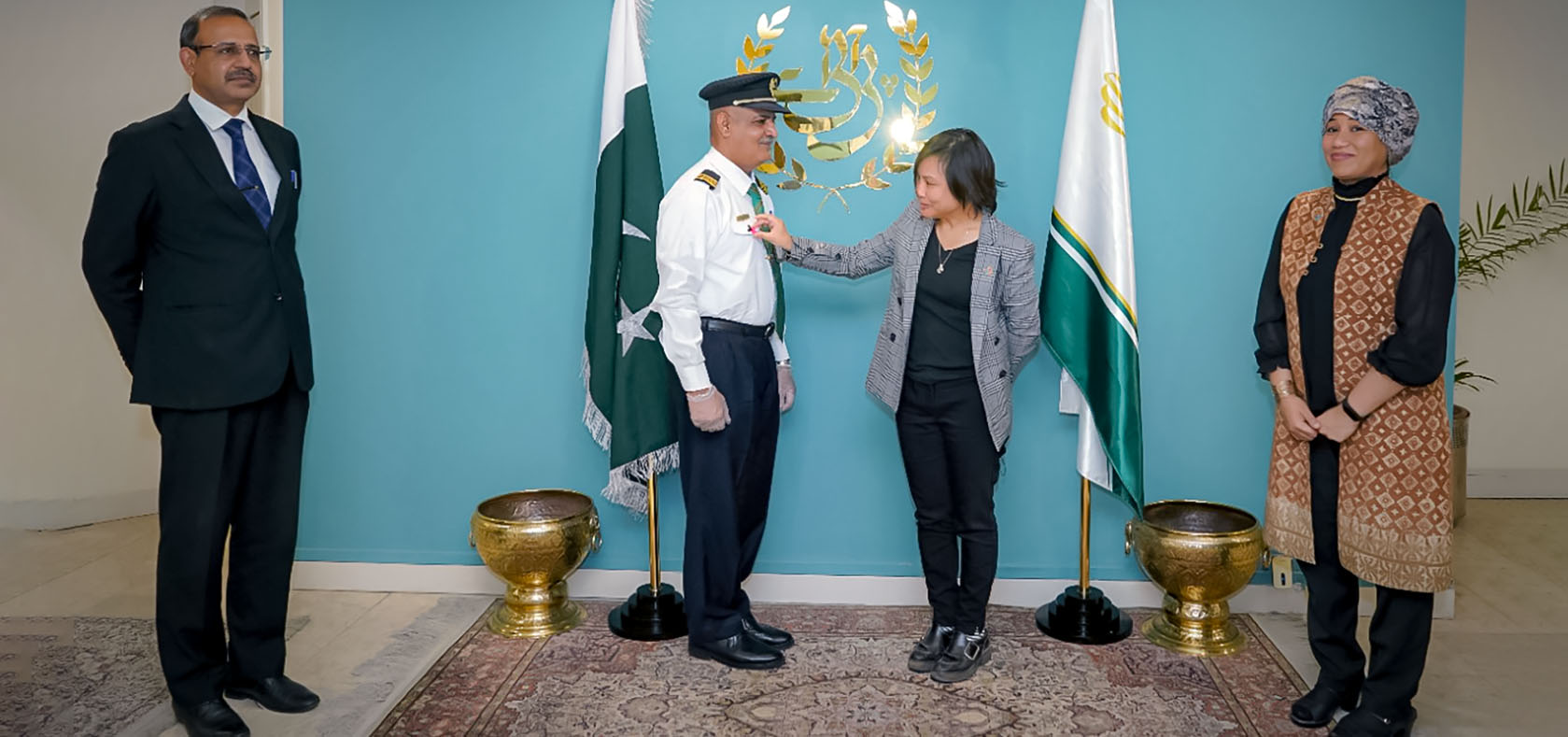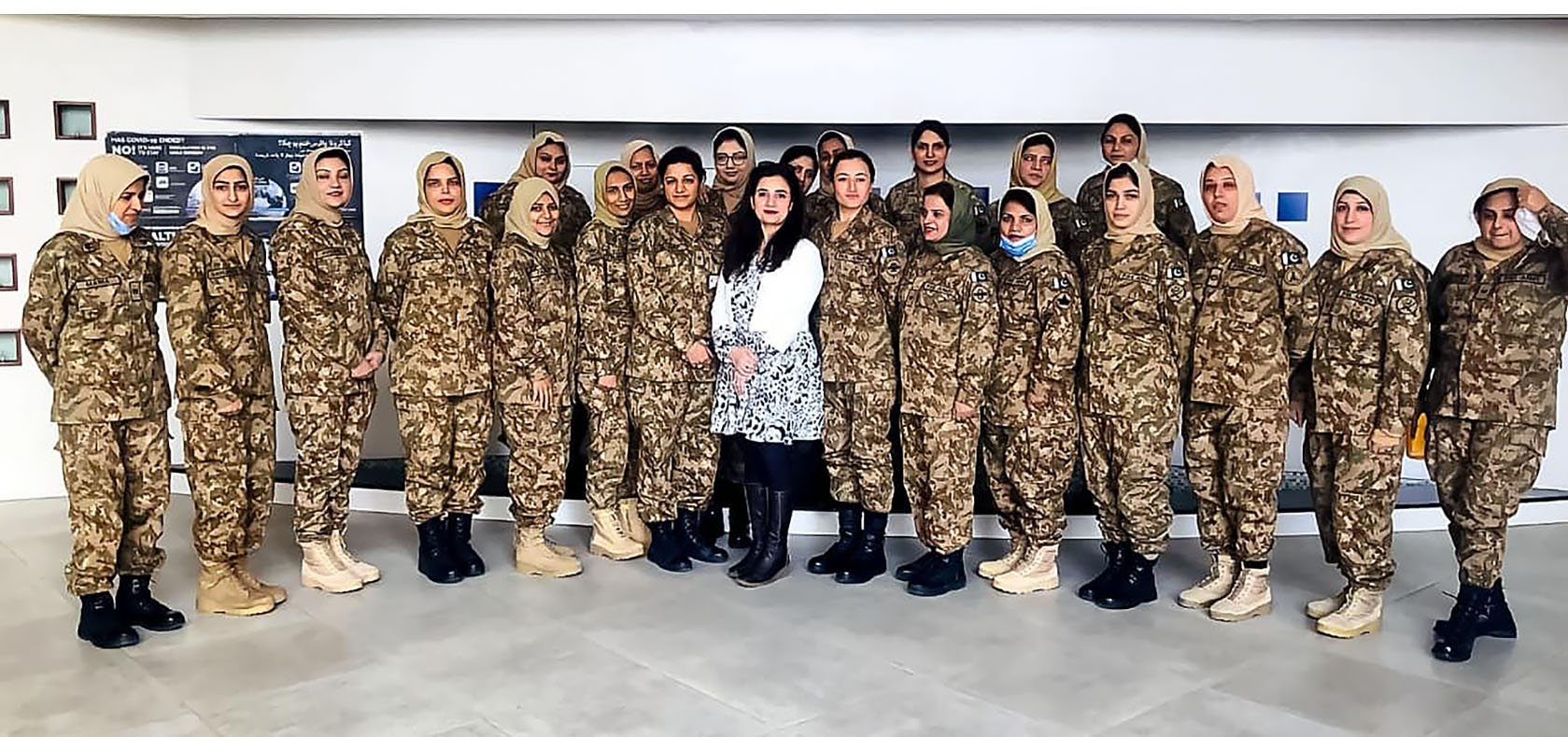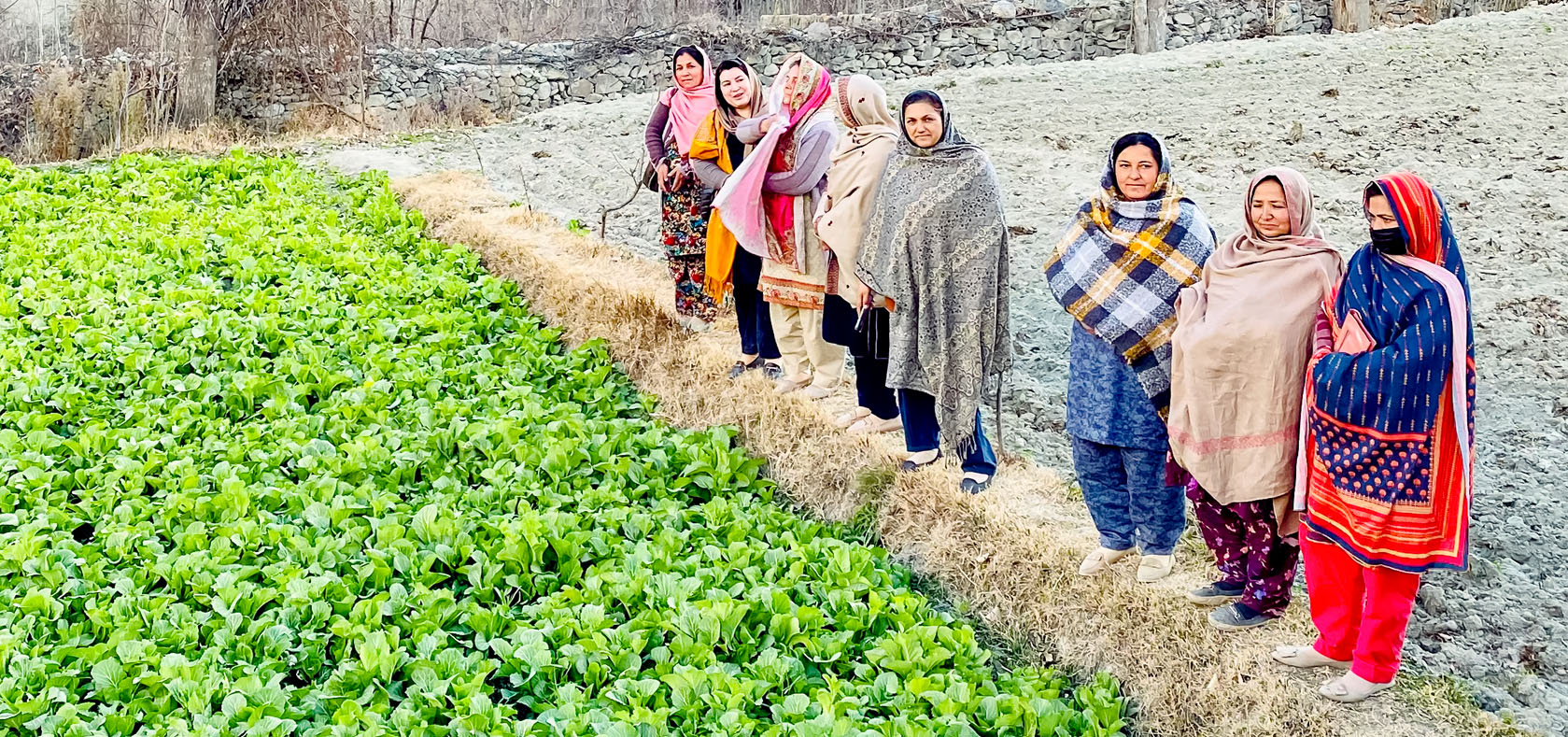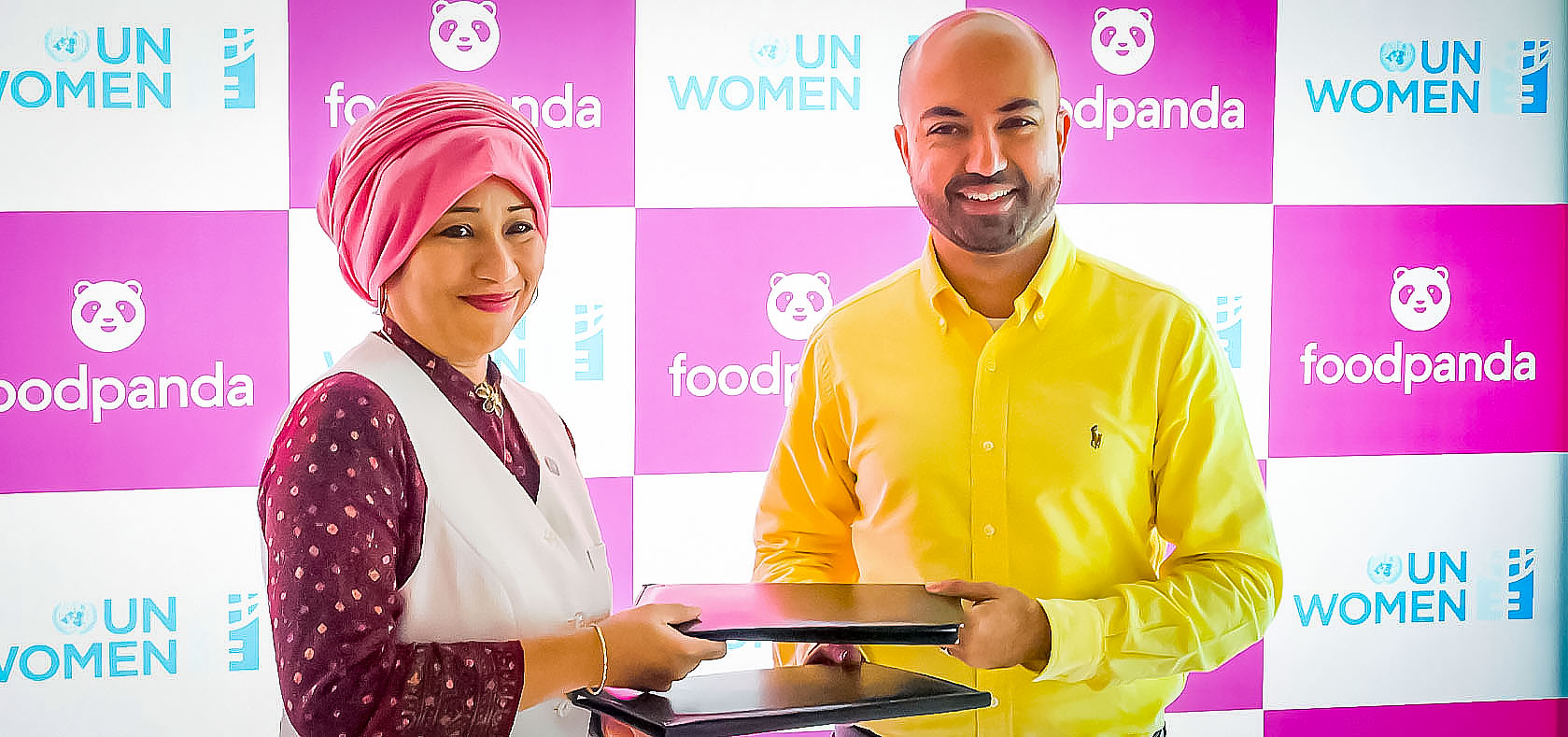Partnership and Coordination
UN Women delivers value to its partners in several ways:
UN Women’s partnerships with businesses, and philanthropies in internal coordination mechanisms underlined by shared agendas to advance gender equality and women’s empowerment in the workplace, marketplace, and community. UN Women is primed to convene government, corporate, civil society, and grassroots leaders and individuals to bring together a variety of partnerships through bilateral and multi-stakeholder engagements.
Partnering with Government of Pakistan

UN Women has partnered with Pakistan International Airlines (PIA) on increasing awareness of PIA’s travelers/passengers on what constitutes harassment and passenger rights through website, social media, Social Responsibility Initiative and joint campaign and to bring attention for those who do not comply.
UN Women leads the mandate on UNSCR 1325 relating to Women, Peace and Security Agenda (WPS) which aims to increase meaningful participation of women in the peacebuilding sphere. Particularly for peacekeeping missions in fragile and conflicted areas, women ensure greater access to marginalized communities, help in promoting human rights and protection of civilians, and encourage community women to play a meaningful role in peace and political processes.

In lieu, UN Women Pakistan has partnered with Centre for International Peace and Stability (CIPS) at National University of Sciences & Technology (NUST) through a Memorandum of Understanding (MOU) to collaborate on advancing gender-responsive peacekeeping operations. Pakistan is the largest and longest troop-contributing countries for UN peacekeeping forces around the globe, having deployed 200,000 forces since 1960. Through this partnership, the two entities will integrate gender as a cross cutting theme in training modules and advocate for the participation of women in peacekeeping missions.
UN Women is also partnering with National Counter Terrorism Authority (NACTA) of Pakistan to strengthen the capacity of government institutions on gendered dynamics of violent extremism, and to promote peace and tolerance among women and youths through alternative platforms like sports, dialogues, art amongst others. NACTA serves as Government of Pakistan’s focal institute to address rising extremism through policy initiatives and engagement of youth and women in particular.

UN Women has signed a Letter of Intent (LOI) with Soni Jawari Public Policy Center (SJPPC), based in Gilgit-Baltistan region to provide technical support to SJCPP to integrate gender perspectives in Government of Gilgit Baltistan’s development policies and plans, relating to women empowerment, establish a “Data Hub” to develop evidence-based development policies, and undertake joint initiatives in areas of women economic empowerment, violence against women, women’s political participation, and social cohesion
To advance work on innovative gender financing, so as to unlock private and public sources of finance for women empowerment, UN Women has engaged with important partners from the financial sector of Pakistan – including the central bank and apex financial regulatory of the country, the State Bank of Pakistan.
Partnering with Private Sector
In Pakistan, there are over 70 per cent of the commercial banking sector, 100 per cent of the textile and telecommunications sectors, and a significant part of the cement, sugar, automobile and fertilizer sectors are in the private sector. Within infrastructure development, besides telecommunication, the private sector has been active in the power sector. UN Women has partnered with private sector companies to advance gender equality and women’s empowerment. UN Women Pakistan works to create the harassment-free environment in the public and private spheres, specifically for women. In Pakistan, UN Women works with around 100 private sector companies for the implementation of Women Empowerment Principles (WEPs) in four areas:
- Leadership
- Workplace
- Marketplace
- Community
UN Women partnered with Soorty Enterprises Pvt. Limited to support them in their capacity building of their 200 female workers under UN Women’s Women Economic Empowerment (WEE) programme. The awareness and capacity building focused on (i) health and well-being (ii) sexual harassment (iii) domestic violence and (iv) livelihoods enhancement, with the aim to raise awareness and create a conducive and safer workplace.
Under the partnership with Nishat Mills Limited and Foodpanda, UN Women Pakistan is advocating to introduce gender-responsive policies along with conducting gender sensitization trainings for creating safe and dignified workplaces.
In addition, UN Women in collaboration with Pakistan Mobile Communications Limited (Jazz) is also working jointly on improving digital literacy, enhancing women’s financial literacy, financial inclusion and business development to empower 10,000 women micro-entrepreneurs by 2024 by providing digital and financial literacy training and access to digital wallet solutions.
Partnership with United Nations Country Team (UNCT)
UN Women has continued to make progress in fulfilling its function of assisting and coordinating the UN System strategies, policies, and actions to promote effective system-wide gender mainstreaming.
UN Women Pakistan builds on its current and past partnerships with UN Agencies with greater emphasis on joint programming and promotion of pooled financing under the UN Sustainable Development Cooperation Framework for Pakistan (UNSDCF) 2023-27. The UNSDCF comprises five outcome areas, out of which one is a stand-alone outcome for Gender Equality and Women Empowerment, that UN Women leads. For the remaining outcome areas, UN Women contributes to these as a partner agency.
The Gender Equality and Women and Girls Empowerment Inter-Agency Group (GEWGE IAG)
UN Women chairs GEWGE IAG serving as the Gender Theme Group (GTG), an interagency coordination group that provides strategic support and advice to United Nations country teams in enhancing their gender mainstreaming efforts. The GEWGE IAG aims to promote gender equality and empowerment of all women and girls through gender-responsive performance management and strategic planning, sex-disaggregated data, reporting and resource tracking while drawing on gender expertise to mainstream gender equality in the implementation of the Cooperation Framework.
The Interagency Gender and Development Group (INGAD)
UN Women serves as a permanent co-chair along with a rotating co-chair and secretariat facilitating strategic dialogue and joint advocacy on issues related to gender equality and women’s empowerment in the development and humanitarian sectors, and interagency coordination in Pakistan. Since 1985, the network consisting of bilateral actors, multilateral agencies (including UN agencies) and international financial institutions (IFIs) has been functional/operational to promote gender equality through interagency coordination and collaboration.
Ways to Partner with UN Women:
[1] Women Empowerment Principles:
UN Women encourage private companies to commit to WEPs, a set of Principles offering guidance to businesses on how to promote gender equality and women’s empowerment in the workplace, marketplace and community. Join the WEPs community, a global network of 6,000+ change agents, to foster business practices that empower women and also gain access to networking events and training resources.
Learn more at: www.weps.org
[2] Dignified and Harassment-free Workplaces:
UN Women Pakistan has been working extensively with the private sector in Pakistan and has trained over 300 officials from higher management, and compliance committees along with running dedicated Training of Trainers programmes.
[3] Our Global Campaigns:
Partners are encouraged to join our global campaigns, which reach mass audiences and are;
Partners are encouraged to join our global campaigns, which reach mass audiences and are designed to inspire them to act on a range of concerns vital to women and the SDGs. UN Women’s campaigns include HeForShe, Unstereotype Alliance and Youth for 2030.
